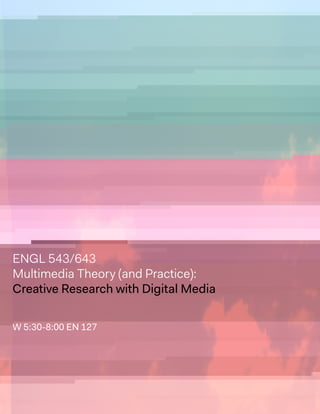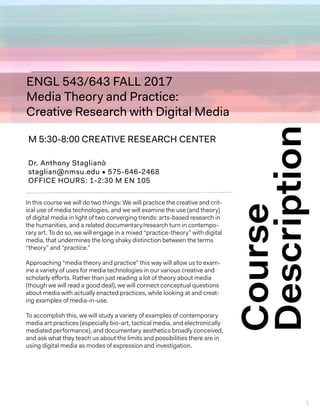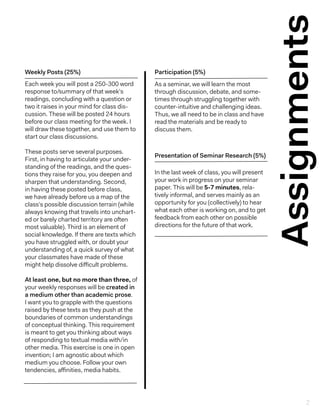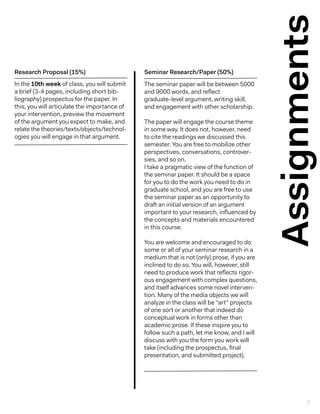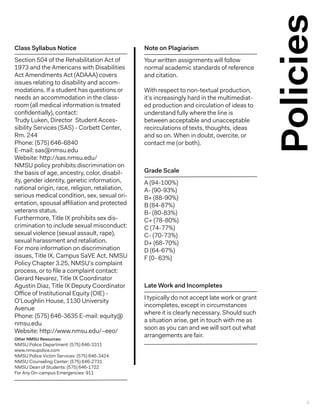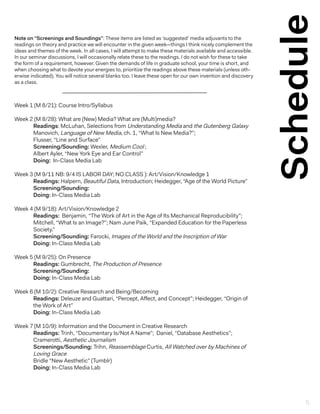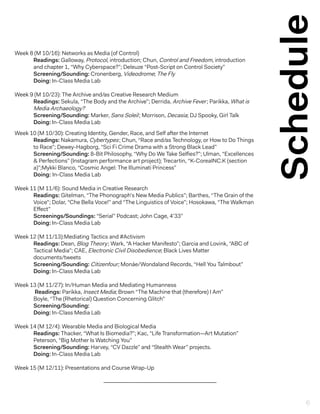This course examines the creative and critical use of digital media through a mix of theory and practice. Students will study examples of media art like bio-art, tactical media and performance art to understand the possibilities of using digital media for expression and investigation. The course will explore trends in arts-based research and documentary approaches in contemporary art. Rather than just reading about media theory, students will connect conceptual questions to hands-on media projects. Assignments include weekly reading responses, an in-progress seminar presentation, and a final research paper or creative project engaging with the course themes. The goal is for students to grapple with challenges at the boundaries of conceptual thinking through different forms of response beyond academic writing.
